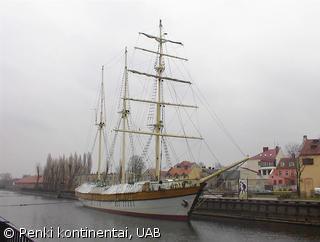Independent journalists and international human rights organizations are concerned about the future of free-press development in Kazakhstan
Published:
20 January 2004 y., Tuesday
Independent journalists and international human rights organizations are concerned about the future of free-press development in Kazakhstan, citing pending media legislation that would effectively give the government the ability to meddle in the operations of news-gathering organizations.
A clear majority in Kazakhstan's lower house of parliament, or Mazhilis, passed the media bill on December 25. Free-speech advocates believe the upper house, or Senate, will approve the bill as early as in mid-February. "We have no hope in the Senate, and [only] a very small hope that the president will reconsider and not sign this draft law," said Irina Petrushova, editor of the opposition Assandi Times newspaper.
Under the law, the Ministry of Information Affairs would have nearly unlimited powers to suspend a media organization's operations. The law places no restrictions on monopolies, and does little to guarantee journalists' rights. The law vaguely states that journalists have a right to gather information. At the same time, the legislation mandates that media organizations perform certain functions as defined by the Ministry of Information - a requirement that critics fear could be used to deny registration to media outlets that anger the government.
Petrushova, one of the bill's most outspoken critics, said the Western reaction to the media bill could play a pivotal role in its future. An outcry against the law by Western government and non-governmental groups could pressure Kazakhstani President Nursultan Nazarbayev not to sign the restrictive legislation. The Assandi Times has already published two so-called "protest editions" with statements from international organizations such as Reporters Without Borders and the World Association of Newspapers that criticize the draft law. The newspaper plans to release additional special editions in January to draw fresh international attention to the legislation. But, so far, such criticism appears to have had little effect.
Šaltinis:
EurasiaNet
Copying, publishing, announcing any information from the News.lt portal without written permission of News.lt editorial office is prohibited.
The most popular articles
 The twentieth anniversary of the Baltic Way was commemorated in Tokyo.
more »
The twentieth anniversary of the Baltic Way was commemorated in Tokyo.
more »
 After an emotional funeral service in Boston and a 90-minute flight from Massachusetts, the flag-draped casket holding Edward Kennedy arrived by motorcade in Washington, D.C. for a final visit to the U.S. Capitol Building, the political home for the senior Senator of Massachusetts for almost half a century.
more »
After an emotional funeral service in Boston and a 90-minute flight from Massachusetts, the flag-draped casket holding Edward Kennedy arrived by motorcade in Washington, D.C. for a final visit to the U.S. Capitol Building, the political home for the senior Senator of Massachusetts for almost half a century.
more »
 Mike Perham has become the youngest person to sail single handedly round the world. It's also the dream of another teenager in the Netherlands.
more »
Mike Perham has become the youngest person to sail single handedly round the world. It's also the dream of another teenager in the Netherlands.
more »
 Whenever its member countries are hit by natural disasters, the EU steps in to help coordinate assistance and fund the reconstruction of essential infrastructure.
more »
Whenever its member countries are hit by natural disasters, the EU steps in to help coordinate assistance and fund the reconstruction of essential infrastructure.
more »
 Inside this tiny house in central Cuba a woman rekindles old fashioned romance in a modern age. Liudmila Quincose writes love letters for a living.
more »
Inside this tiny house in central Cuba a woman rekindles old fashioned romance in a modern age. Liudmila Quincose writes love letters for a living.
more »
 A traditional drum beat opens the 2009 World Karate Championships in Japan.
more »
A traditional drum beat opens the 2009 World Karate Championships in Japan.
more »
 Scientists are investigating the death of about 300 sea lions on the coast of Chile.
more »
Scientists are investigating the death of about 300 sea lions on the coast of Chile.
more »
 Carmen Valverde and her dog Tomas were out for a walk in their Lima, Peru neighborhood when Tomas was snatched from her side.
more »
Carmen Valverde and her dog Tomas were out for a walk in their Lima, Peru neighborhood when Tomas was snatched from her side.
more »
 It was never going to be a quiet affair when Lance Armstrong put out an invitation on twitter for fans to join him on a bike ride around a Scottish town.
more »
It was never going to be a quiet affair when Lance Armstrong put out an invitation on twitter for fans to join him on a bike ride around a Scottish town.
more »
 About half of the British public feel there is a general negative bias in reporting on EU affairs on television, radio and in the written press, with written press reports seen as the most negative, according to a public opinion poll published by the European Commission today.
more »
About half of the British public feel there is a general negative bias in reporting on EU affairs on television, radio and in the written press, with written press reports seen as the most negative, according to a public opinion poll published by the European Commission today.
more »